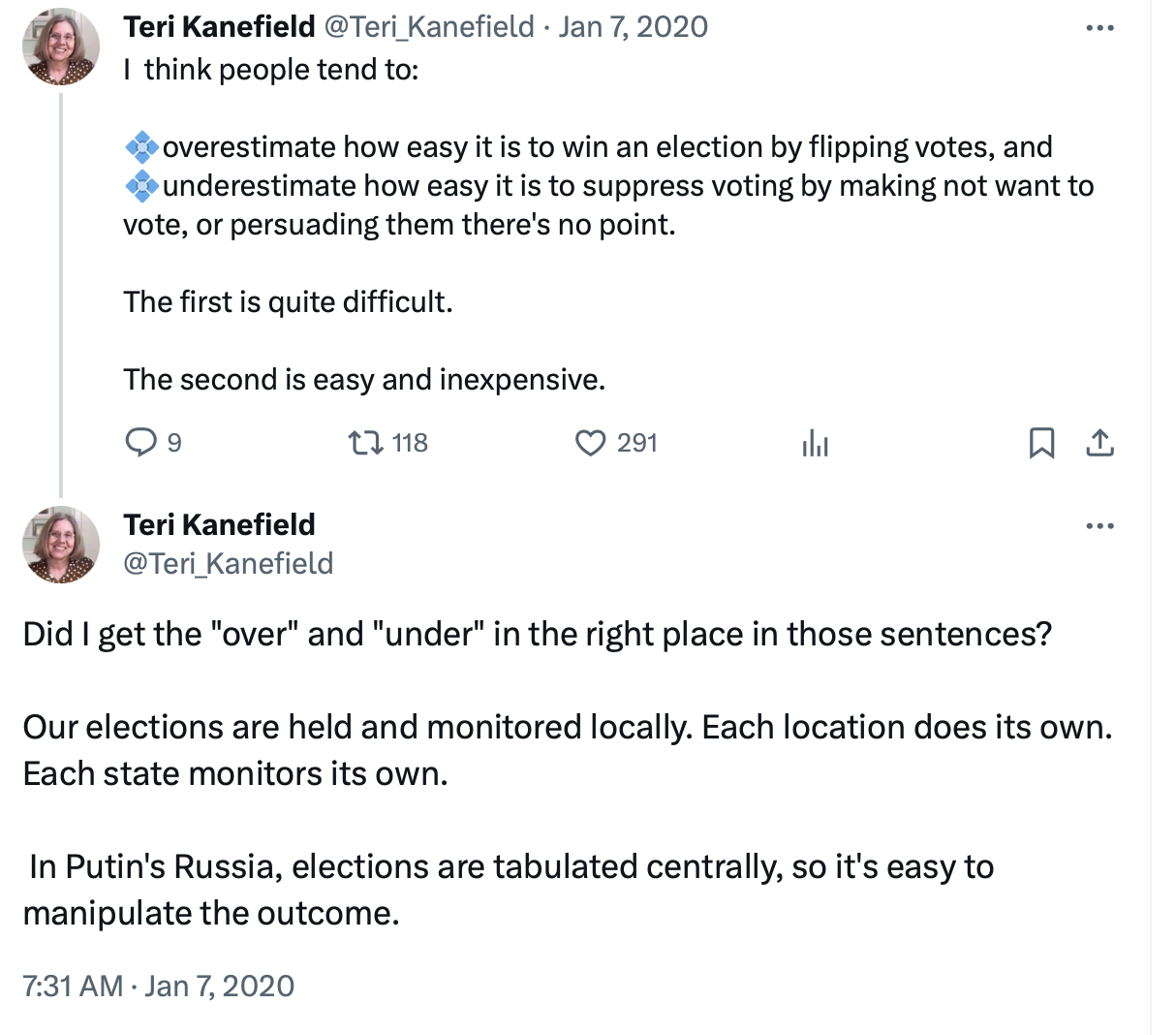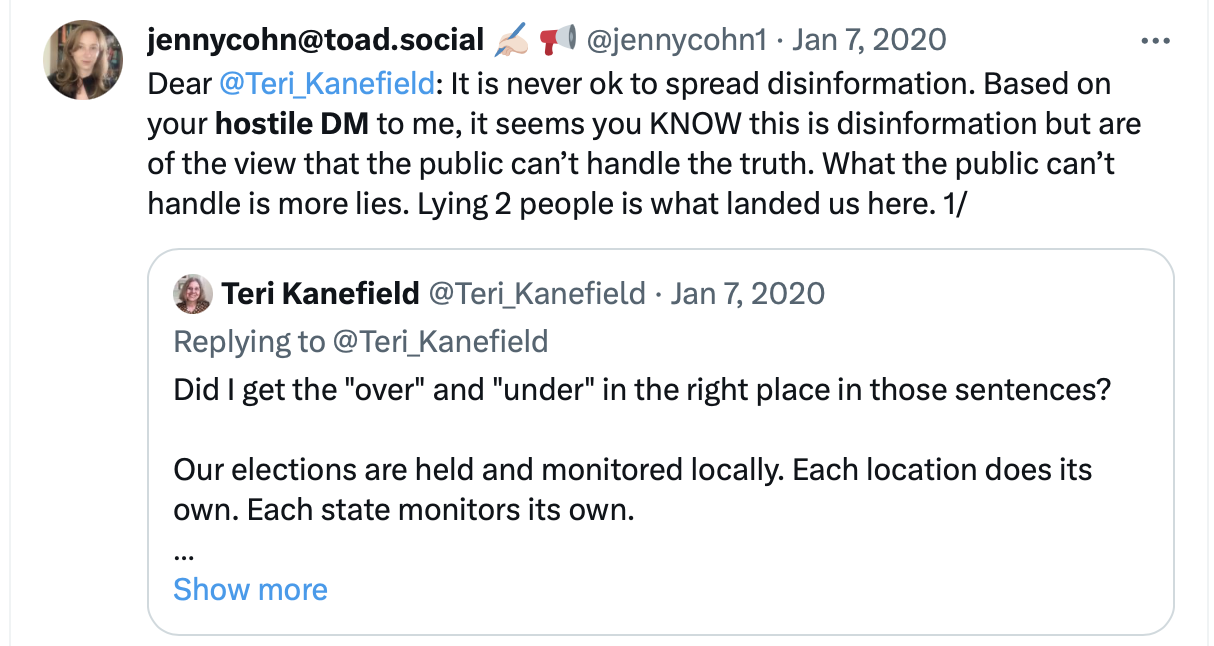I had a hard time answering this question⬇️ because it brought back an unpleasant memory: The time I tried to explain on Twitter that the voting machines in Georgia were secure.
So before I answer this question, let me tell you a story.
First, my credentials. I monitored polling places and machine vote tabulation in Nevada as a volunteer poll watcher in 2016 and 2018. In 2018-2019, I did volunteer work for the voter protection group in Georgia (through the Georgia Democratic Party). One of my tasks in GA was to revise the legal manual with the new information about the machines and procedures after the court-ordered changes in 2019.
The problem started when I wrote this thread on Twitter. Here was the highlight:
I could tell from my mentions that a lawyer named Jenny Cohn (who evidently had a large and devoted following) had spent years telling people that the voting machines in Georgia were not secure and in fact, it would be ridiculously easy for someone to flip the votes.
I sent her a DM and tried to tell her that the voting machines were not secure. I also tried to explain to her that telling people that voting machines are not secure would be likely to suppress the vote. There is a lot of voter suppression in Georgia and people have to overcome a lot of barriers. They may not go to all the trouble required if they think their votes won’t count.
She then went on Twitter, replied to the thread I posted, and told her 200,000 followers that I sent her a “hostile” DM and was spreading disinformation about voting machines:
To say I got pushback is an understatement. Let’s just say people called me lots of vile names. One person told me I was doing the devil’s work by lying to people about the voting machines being secure.
I didn’t want to try again to tell Twitter the machines were secure. Nobody likes being called names, me included.
After it was obvious that the voter machines were, in fact, secure, Jenny Cohn decided she was no longer an elections expert and instead announced that she is an expert on right-wing politics
Trump learned that the hard way, as Georgia Secretary of State explained:

Second, I came up with an argument that allowed me to hide behind respected authority: Stacey Abrams. My argument: Why did Stacey worry about voter suppression in Georgia and not the machines? She should know, right?
When it became clear that the machines used in GA were secure, I thought WHEW! Then I got this question:
We see right away that this is hope-porn:
This came from a Democrat:
This caused me to do some thinking about fear-mongering and paranoia and conspiracy theories. It’s hard to talk about this because Trump came close to destroying democracy in America. Another term would have done it. So we have real worries.
It’s just that people tend to worry about the wrong stuff. It can be hard to sort out what to worry about. Also, obviously conspiracy theories and hope porn exist on both sides of the political spectrum. So here’s my advice for elections and saving democracy.
Volunteer to work in your local elections. Elections are held and monitored locally (actually, I was also called a liar for saying that):
If you don’t believe me, volunteer. You’ll find out. If you can, run for local office. Be the person in charge.
Second, follow Stacey Abrams’s example: The way to win elections is to register voters and get them to the polls. Register voters. Do it. For the next two years. Finally, don’t spread fear about the voting process, particularly before an election.
I’ve only see this kind of thing on social media:
I’ve never seen it covered by any major news source. If you (or someone else) has information, turn it over to a reputable journalist. If I don’t see something in a major news source, I don’t waste time.
This smart comment was a response to the “McConnell won because of fraud” Tweet example I included:
The GOP has become the party of QAnon and OANN. That leaves us to be the smart party able to distinguish innuendo and suggestion from fact.
Beware when someone says, “This is true. I don’t know why the major media isn’t covering it.” Journalists love a good scoop. Some of it is hope porn. We want to believe our candidate would have won, but for fraud. It feels better than “the majority wanted someone else.”
Also remember that fear-mongering and hope-porn peddling are ways to get clicks and be popular. Neither are healthy or productive.








